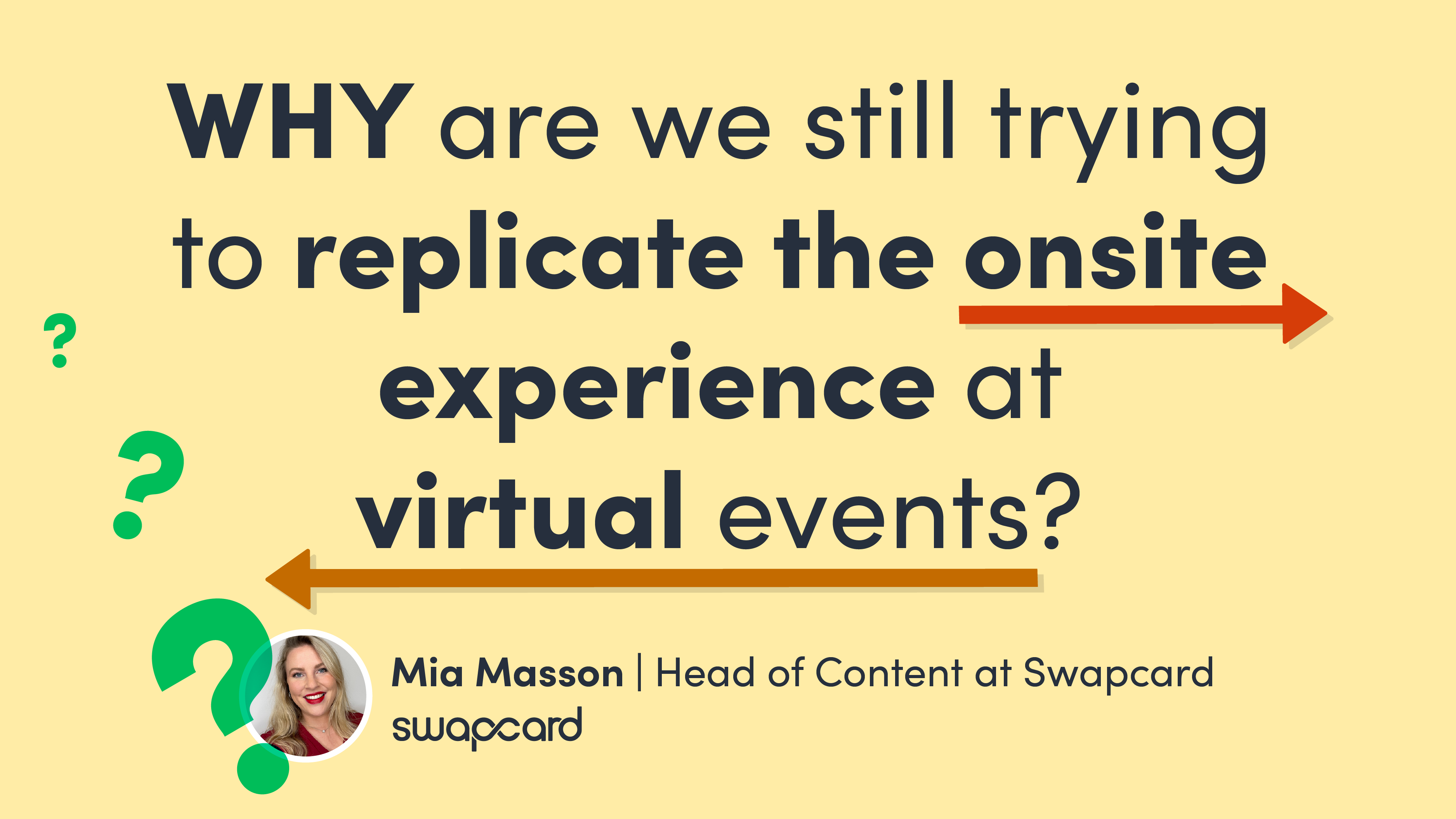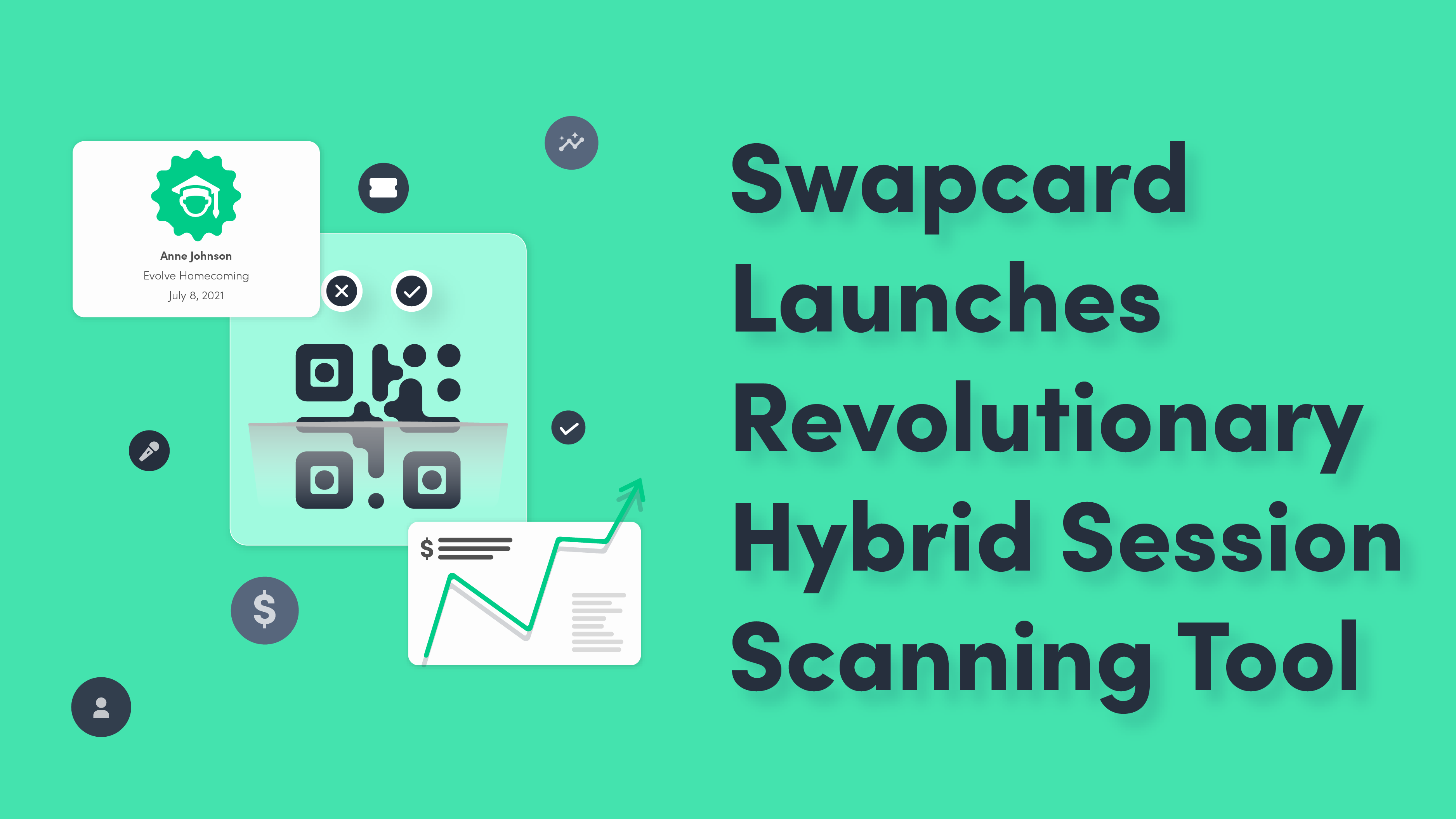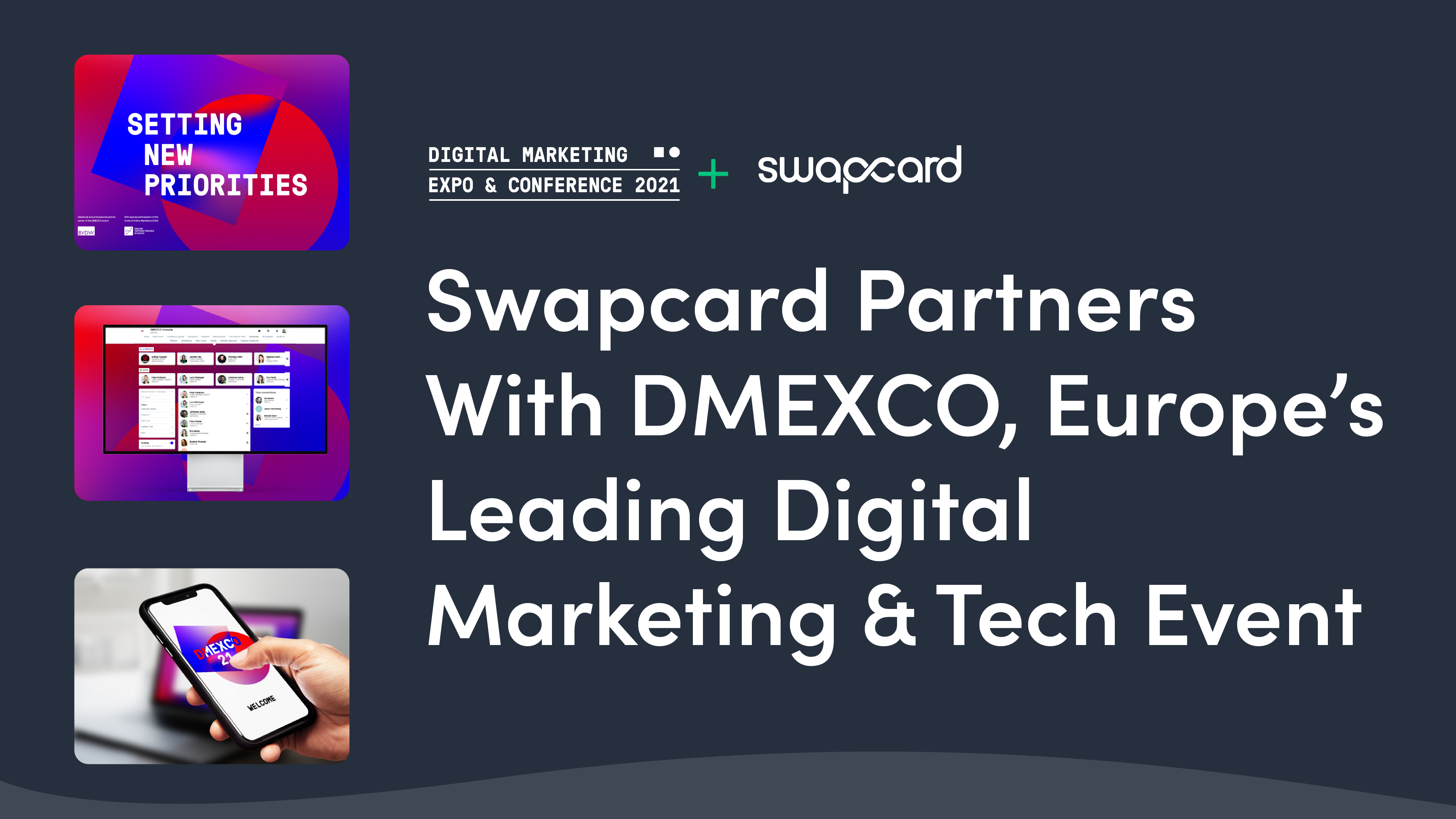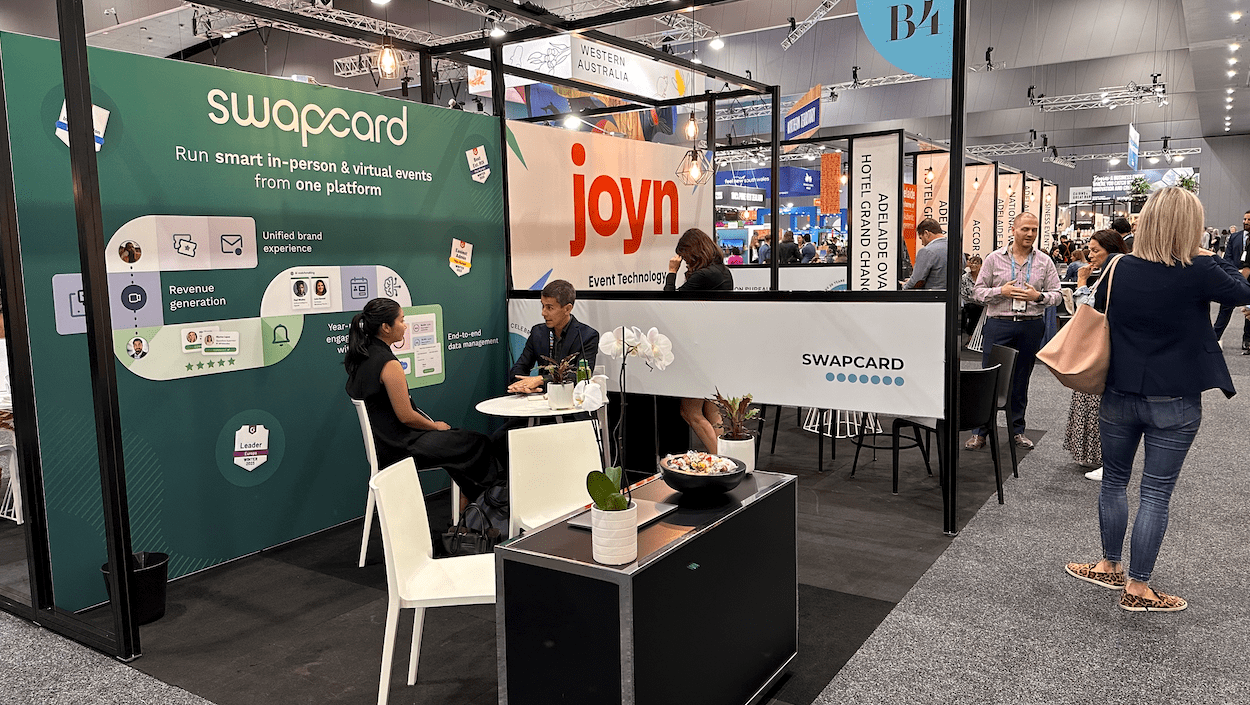I'm Mia Masson, Head of Content at Swapcard. You’ve probably seen me way too often on this blog, but I’m back here doing an opinion piece, anyway.
Because there’s something that’s been bugging me.
My job largely consists of talking to people, interviewing industry players, speaking with clients, building relationships, and finding out what the struggles are. This type of research helps me understand where the industry is at and what is needed to move forward.
What I've been seeing lately is that many event organizers are still, after 20 months of new models and event evolution, trying to replicate the old, in-person experience down to a T in a virtual world.
Let's start with some research:
Earlier in September 2021, we asked 110 event planners who are in Swapcard's Evolve Community "What are the main challenges you're facing in running events right now?"
- Uncertainty around travel and attendance
- Customer budgets have been cut
- Lack of engagement - this one was the most popular answer
- Virtual fatigue
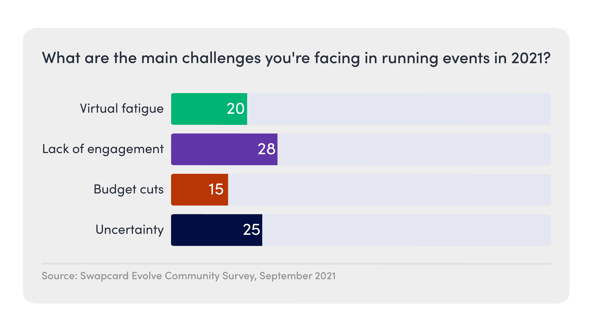
Someone even said it feels like "fortune-telling" knowing where to invest for a hybrid event!
Similar feedback from Event MB's State of the Event Industry Survey 2021 Second Quarter stuck with me:
- When asked about their plan for the future, most event planners said hybrid events (67.5%)
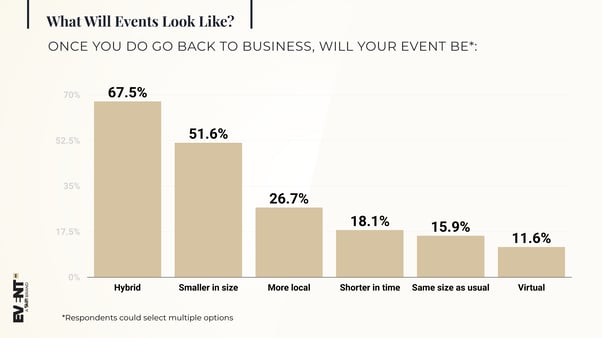
- When asked about their biggest frustrations when sourcing technology for their events, the majority of respondents said “The inability to match live engagement” (50.8%)
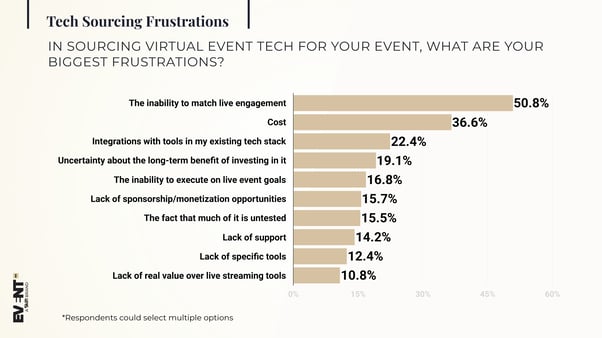
The Problem
We can’t keep copying and pasting an in-person event format into an increasingly online world. It's not working. Event organizers are heading straight for a wall.
They need to be stopped before it's too late and they've lost their audiences.
Event organizers need to start designing events for the specific medium and for their audience. A virtual event that flops didn't do so because the technology sucked. It's because the event wasn't designed to be engaging in a virtual world. A hybrid event that fails probably failed because it wasn't designed to bring two audiences together across time and space.
So how can event brands design events better?
Start by listening.
And how do you listen? By asking the right questions.
Qualifying an event audience is important from step 1: registration. In the registration form, event planners should ask what the community wants. Examples of questions include:
- What are they there to do?
- At a conference, which topics interest them?
- Who are their favorite speakers?
- What are they trying to learn?
- At a trade show, which stage are they at in the buying process - just browsing? Sourcing? Doing demos? Ready to purchase?
The same goes for exhibitors.
- What are their goals?
- How do they prefer to showcase their products?
- How do they prefer to network with leads?
- How many team members are they sending online or onsite?
All of these questions (and more) will help brands understand their communities better. It allows them to design a personalized experience for each community member. With a virtual platform, event organizers can create a customized journey for each user and deliver a unique value proposition that’ll tick each one’s boxes.
Event planners are going hybrid
But not everyone can agree on what hybrid events are... I mean, concretely.
Lately, more and more event professionals have been taking to social media to declare their dislike of the word “hybrid.”
Why?
- They see it as a limiting term
- They see it as a “fad” or a trend, therefore not sustainable
- They don’t believe it encompasses the specific event design they have in mind
Here’s why that needs to change. Hybrid as a word is simply a term coined to create structure and common understanding for an industry in the midst of change. For now, it’s the only vocabulary we’ve got to describe the endless possibilities for new event models post-pandemic. For lack of a better word, hybrid describes the scope of opportunities that technology and in-person combinations can bring!
When it comes to event models, hybrid doesn’t mean 50% virtual, 50% physical. Not necessarily, anyway. It doesn’t mean simultaneous content and networking with two vastly different audiences. Not necessarily, anyway.
It means anything and everything we want it to mean.
Beyond hybrid events... A hybrid community strategy
Events in 2021 are starting to extend their life cycles beyond a few days.
What is a community model? Starbucks, PlayStation, Peloton, Harley-Davidson, Lego, Oracle. What do all these brands have in common? Strong, global, engaged online communities ranging from a few thousand to millions of members.
Event brands can create communities by transforming their event into a 365-day experience. Planners need to start immersing attendees in a branded online world where they can get their fix of networking, new content, human connection and news at the click of a button, any day of the year. Recent research conducted by Swapcard among 461 virtual events shows that the pre- and post-event periods are golden opportunities for networking, and that very little business is closed during virtual event days in comparison. Data shows that, on average, over 90% of leads are generated in the pre-event period, compared to as little as 6% during the event.
So for your exhibitors and sponsors, a community model is perfect.
Here are some of the biggest benefits of moving to a community model:
- More time.
The event brand and the sponsors both have more time to nurture leads, to interact, and to get to know the community. This helps them offer a better value proposition once the flagship event rolls around.
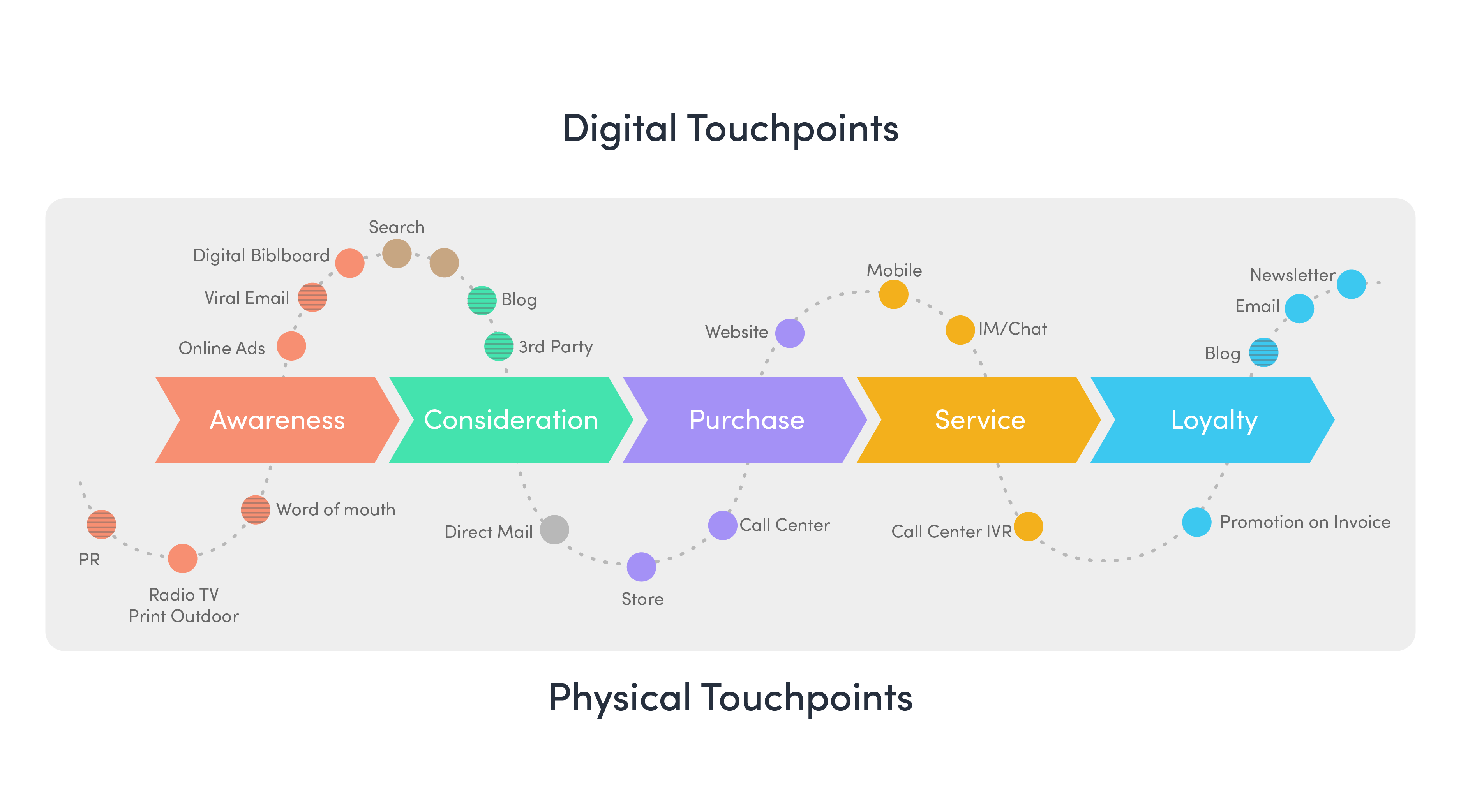
- Data-driven communities are happy communities.
Event brands collect more data on the community's interests and needs. This data is needed by AI algorithms within the community platform to design a personalized experience for each member. And to make sure they keep coming back for the content and networking.
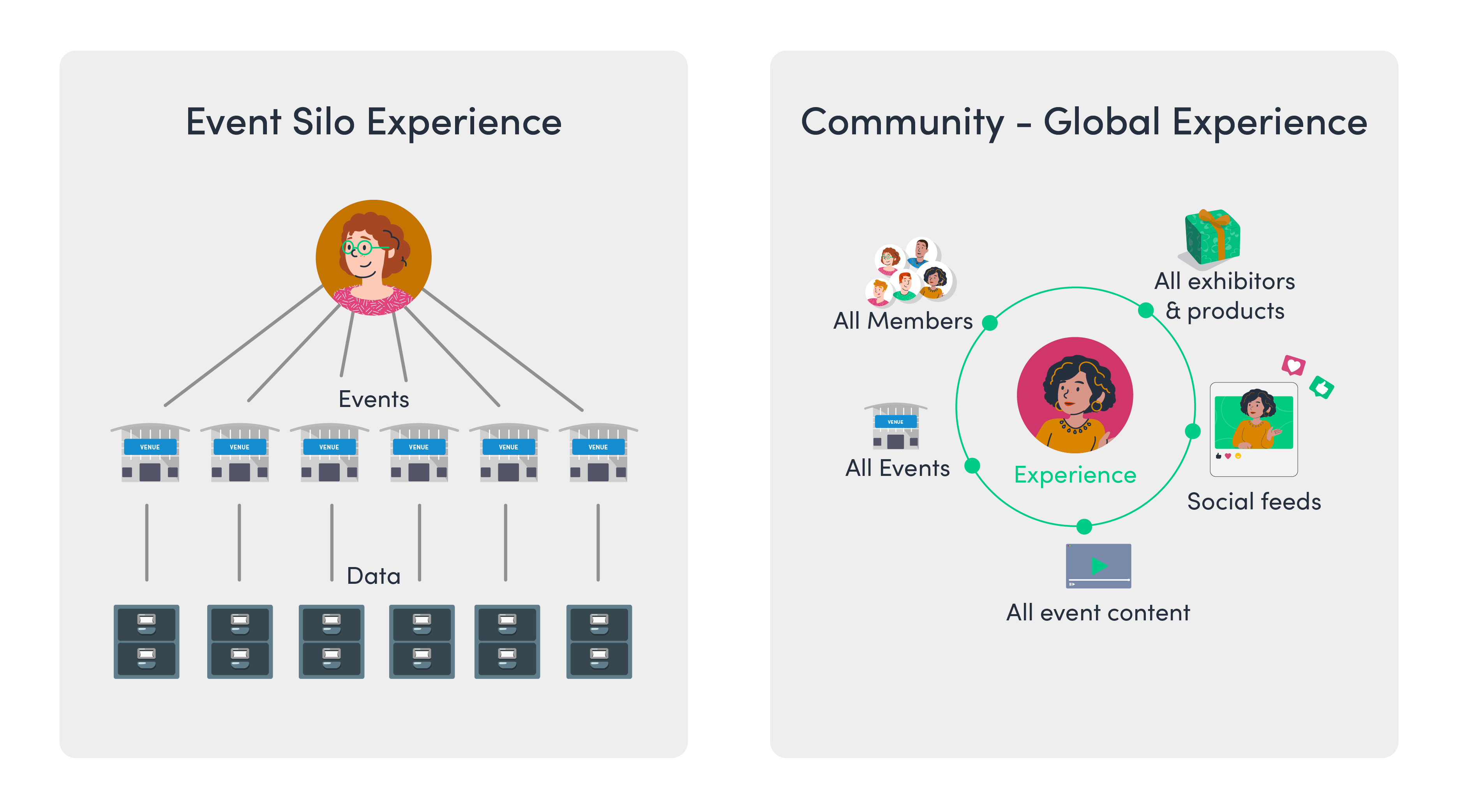
- Brand loyalty.
In a community, people move from entry-level members who simply enjoy sharing their ideas with like-minded professionals, to becoming more interested and invested in the brand. Then, eventually, they become customers or clients. But it doesn’t end there. Communities take that relationship a step further and turn customers and clients into brand ambassadors. Rule number one about marketing: if your community members start recommending your brand just because they love it, you've made it!
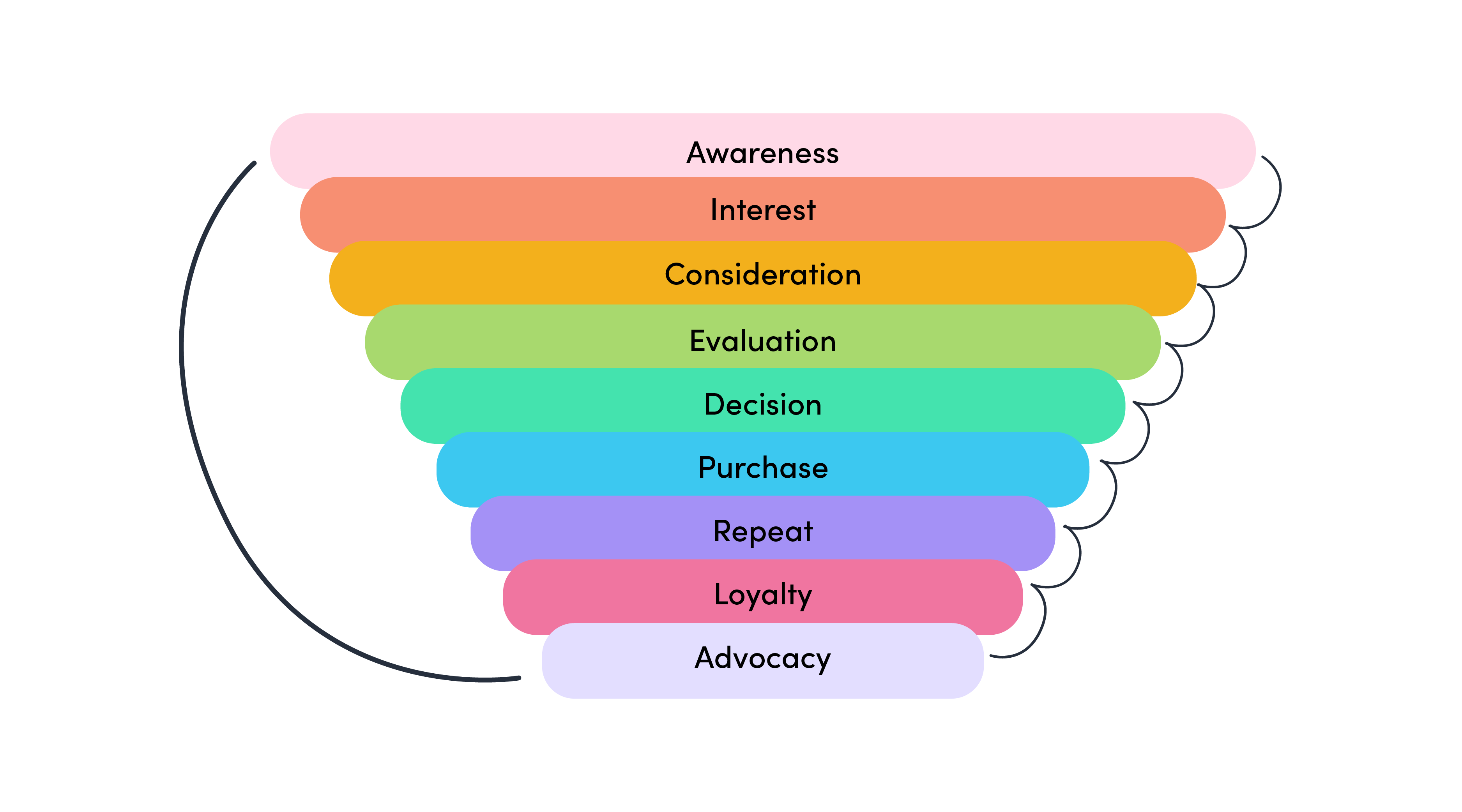
- Remove borders and expand global reach.
When you remove physical borders and financial constraints, you can reach a much more global community. This image was produced from the Evolve event Swapcard ran in July of this year, and it's a real-time representation of our community members who joined online. Before going virtual, we would've never imagined that we would create such a global community on our very own platform.
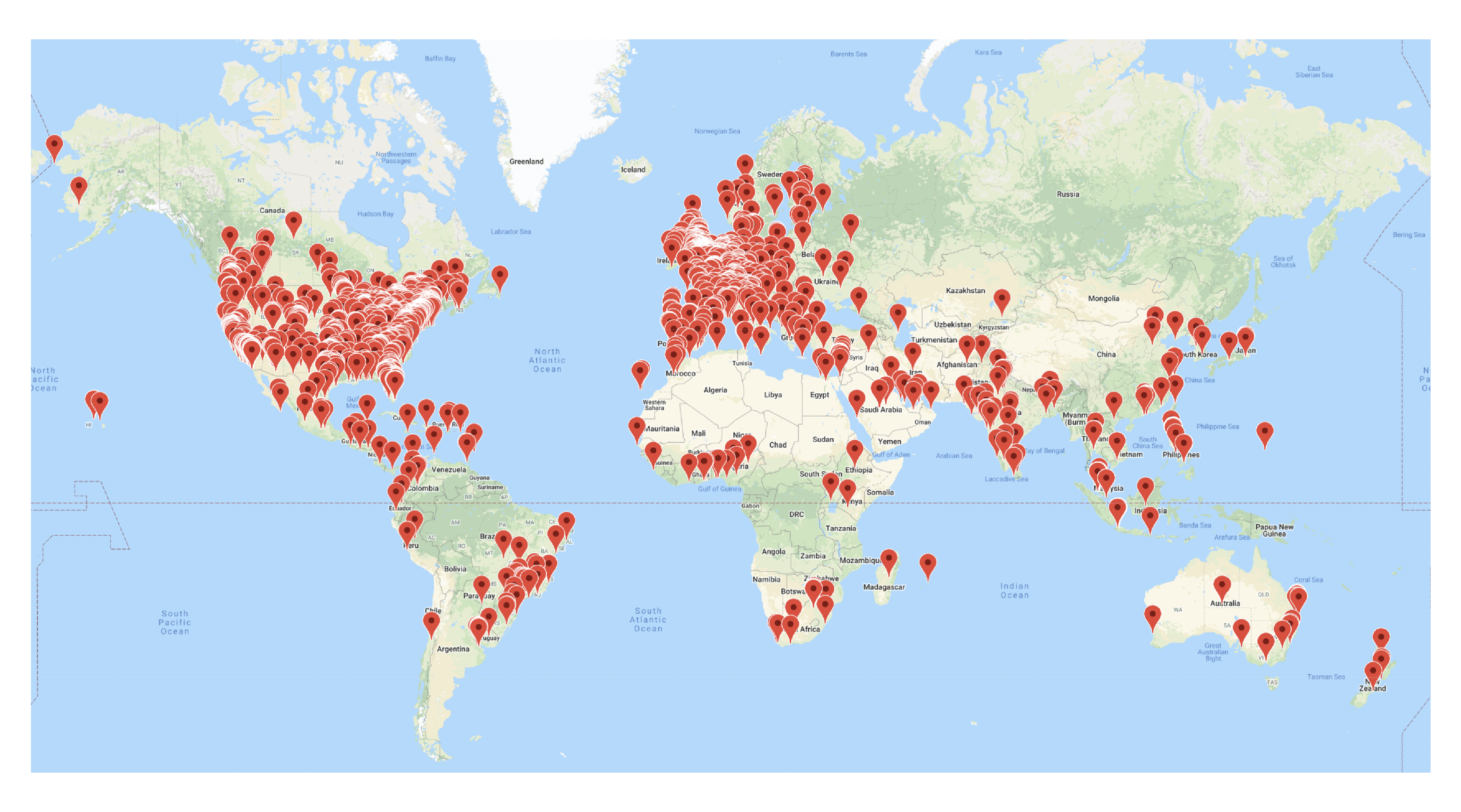
- Boost ROI exponentially.
Finally, the major benefit for event organizers, or shall we call them community owners, is the exponential potential for ROI. If you work on a subscription-based model, there is no limit to the profit you and your sponsors might make.
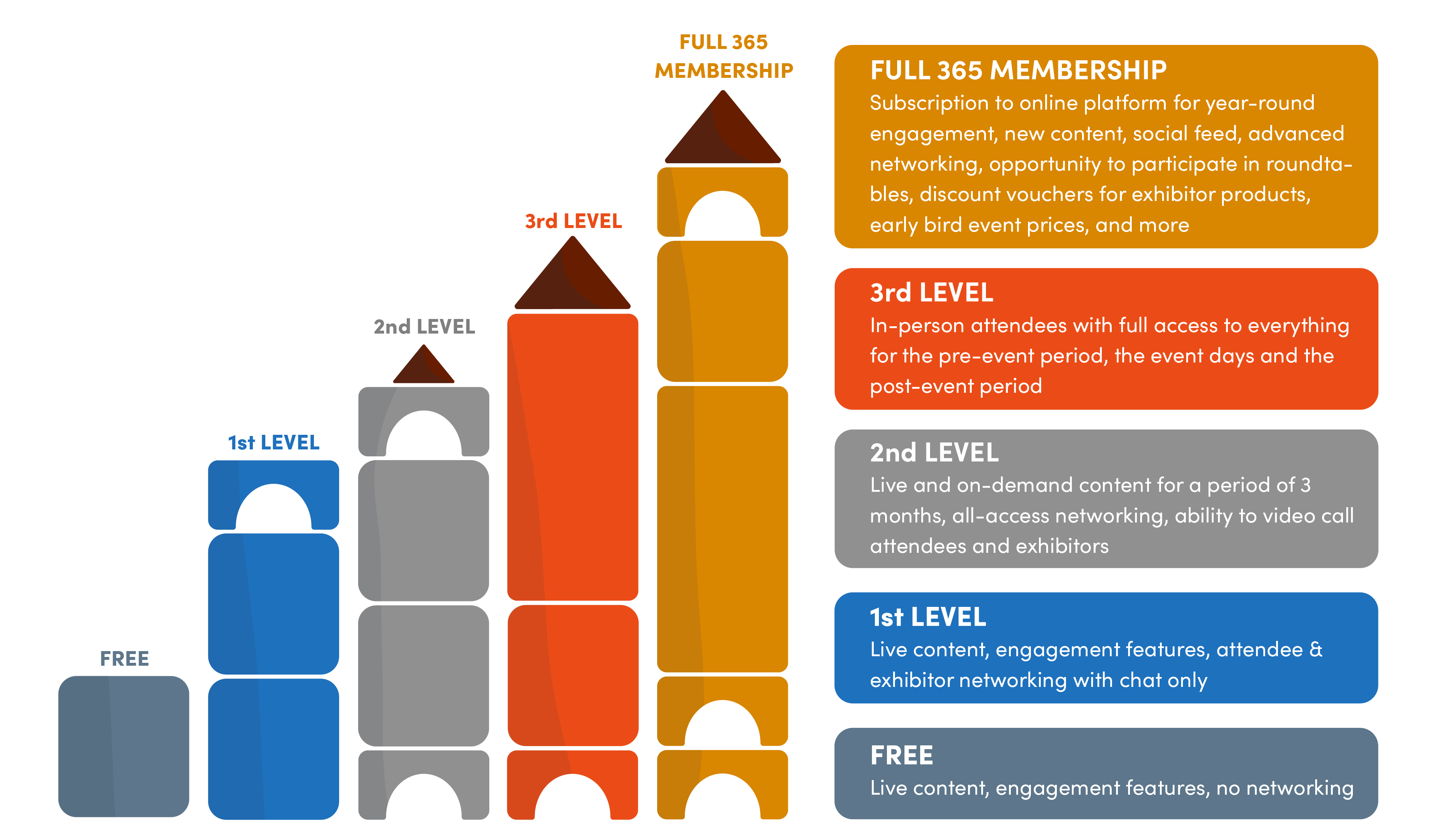
So...to recap.
I'm hopeful.
I'm actually very optimistic about the future. I know that event planners have what it takes to adapt, evolve, and overcome the challenges that lie ahead. Our industry has proven how resilient we are in the face of a global pandemic and canceled events. So let's not stop here.
Let's keep learning and growing together and let's keep an open mind so that we are ready and flexible to take on any curveballs that life might throw at us. Because it's only by being adaptable that we will survive and thrive.
I believe the future of the industry is an ever-connected, engaging world of online relationship-building peppered with memorable face-to-face experiences and more accessibility and sustainability for all involved. Virtual is not a temporary solution, but a compliment to what we've been doing forever and it's here to stay, like it or not.
Want to learn more about embracing a hybrid strategy for your events?
